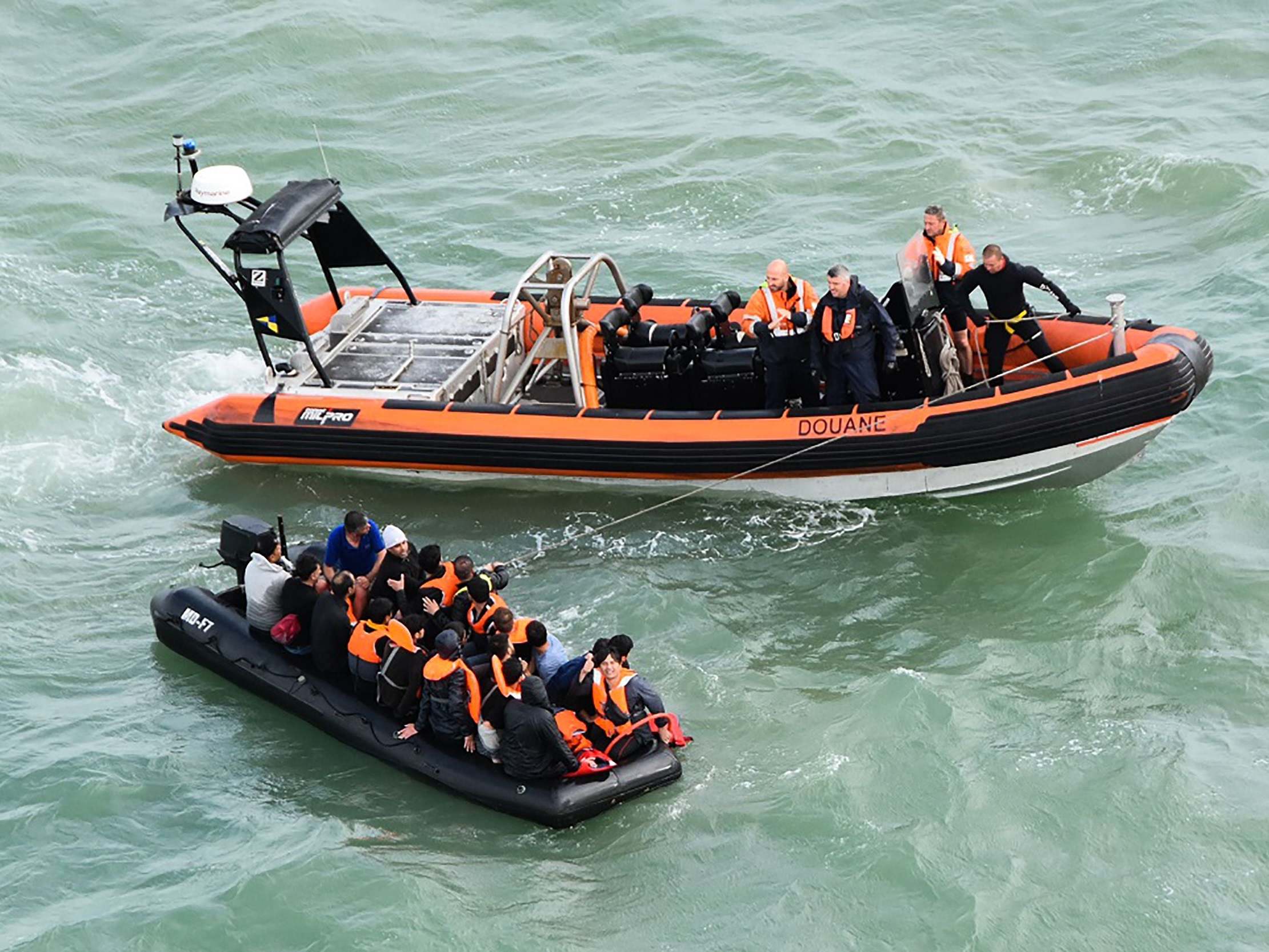‘Brutal’ border policies in Calais condemned after surge in attempted Channel crossings
Boris Johnson warns migrants attempting to cross to UK will be ‘sent back’

Your support helps us to tell the story
From reproductive rights to climate change to Big Tech, The Independent is on the ground when the story is developing. Whether it's investigating the financials of Elon Musk's pro-Trump PAC or producing our latest documentary, 'The A Word', which shines a light on the American women fighting for reproductive rights, we know how important it is to parse out the facts from the messaging.
At such a critical moment in US history, we need reporters on the ground. Your donation allows us to keep sending journalists to speak to both sides of the story.
The Independent is trusted by Americans across the entire political spectrum. And unlike many other quality news outlets, we choose not to lock Americans out of our reporting and analysis with paywalls. We believe quality journalism should be available to everyone, paid for by those who can afford it.
Your support makes all the difference.Ministers have been urged to roll back “brutal” border policies at Calais that campaigners say are forcing migrants to attempt increasingly dangerous crossings to Britain.
Lawyers and charities have also condemned Boris Johnson for stating that he would send any asylum seekers who successfully cross the Channel back to France, branding the remarks “inflammatory” and “misleading”.
The Home Office confirmed officials dealt with 64 people, including at least six children, who tried to reach England in small boats in six separate incidents on Thursday as attempts to reach the UK surged.
French authorities also said they found 30 migrants, including 11 children, attempting to make the crossing that same day – all of whom were taken back to the continent.
The prime minister told reporters on Friday: “The point I would just make to people thinking of making this journey – one, it is very hazardous, you may think the weather looks great but it’s a very, very dangerous thing to do.
“The second thing is – we will send you back. The UK should not be regarded as a place where you could automatically come and break the law by seeking to arrive illegally.”
It comes following the disappearance of a migrant woman who is presumed dead after attempting to cross the Channel to Britain on 9 August. She is the first person known to have disappeared, presumed dead, attempting to seek asylum in the UK.
Charities said this incident and the apparent rise in attempted crossings were a consequence of heightened border security in the area and “increased hostility” by the French authorities.
Maddy Allen, field manager at Help Refugees, said the notable rise in the number of women, men and children attempting to reach the UK by dangerous boat journeys across the Channel had “not happened in a void”.
She continued: “Following extra funding agreements from the UK government towards the harsh security and surveillance measures on the ground in Calais and Dunkirk, the routes undertaken are increasingly dangerous.
“The recent situation of the Channel boats must not be used as an excuse to clamp down hard on innocent people.”
A spokesperson for the Joint Council for the Welfare of Immigrants said Mr Johnson’s comment was “misleading, designed to inflame tension and, if put in practice, would violate international law”.
They added: “The UK is perfectly capable of providing safety and a well-functioning, dignified welcome for desperate people trapped in limbo across Europe. Those who are forced to take dangerous means of reaching our shores have a legal right to have their voice heard and we should be creating safe and legal routes for vulnerable people to come.”
Annette Elder, a partner at human rights law firm Elder Rahimi and a member of the Law Society’s immigration committee, told the PA news agency: “Clearly it’s not possible to say that everyone who crosses the Channel in small boats from France is going to be sent back. The UK is bound by legal obligations.
“This is another example of the way asylum seekers are criminalised. To talk about people illegally crossing the Channel – it’s inflammatory. It misrepresents the situation. Everyone has a right to seek asylum.”
There are currently an estimated 900 people living rough in informal settlements around Grande-Synthe, near Dunkirk, with many sleeping inside a dirty and crowded gymnasium opened as temporary shelter by the local mayor.
Marta Welander, executive director at Refugee Rights Europe, said: “Heightened border security has been accompanied by increased hostility by the French state towards displaced individuals in the area, taking the shape of high levels of police harassment, intimidation, violence and frequent evictions from living spaces. We call on the UK government to urgently provide expanded safe and legal routes to prevent future tragedies.”
A Home Office spokesperson said: “Crossing the Channel in a small boat is a huge risk. The criminal gangs who perpetuate this are ruthless and do not care about loss of life. We have Border Force cutters patrolling the Channel and equipment including drones, CCTV and night vision goggles in use to identify and tackle this dangerous and illegal activity.
“The Home Secretary is in discussions with the French authorities about this issue and we continue to work closely at all levels with France.”
Join our commenting forum
Join thought-provoking conversations, follow other Independent readers and see their replies
Comments